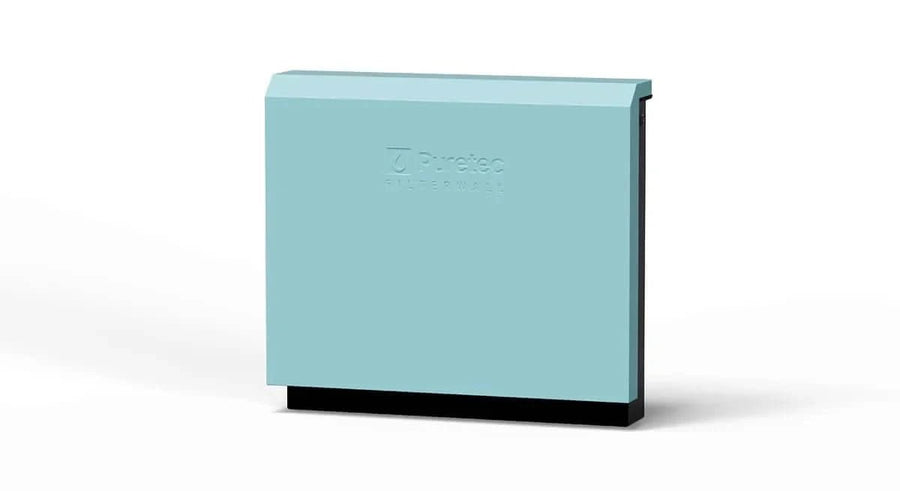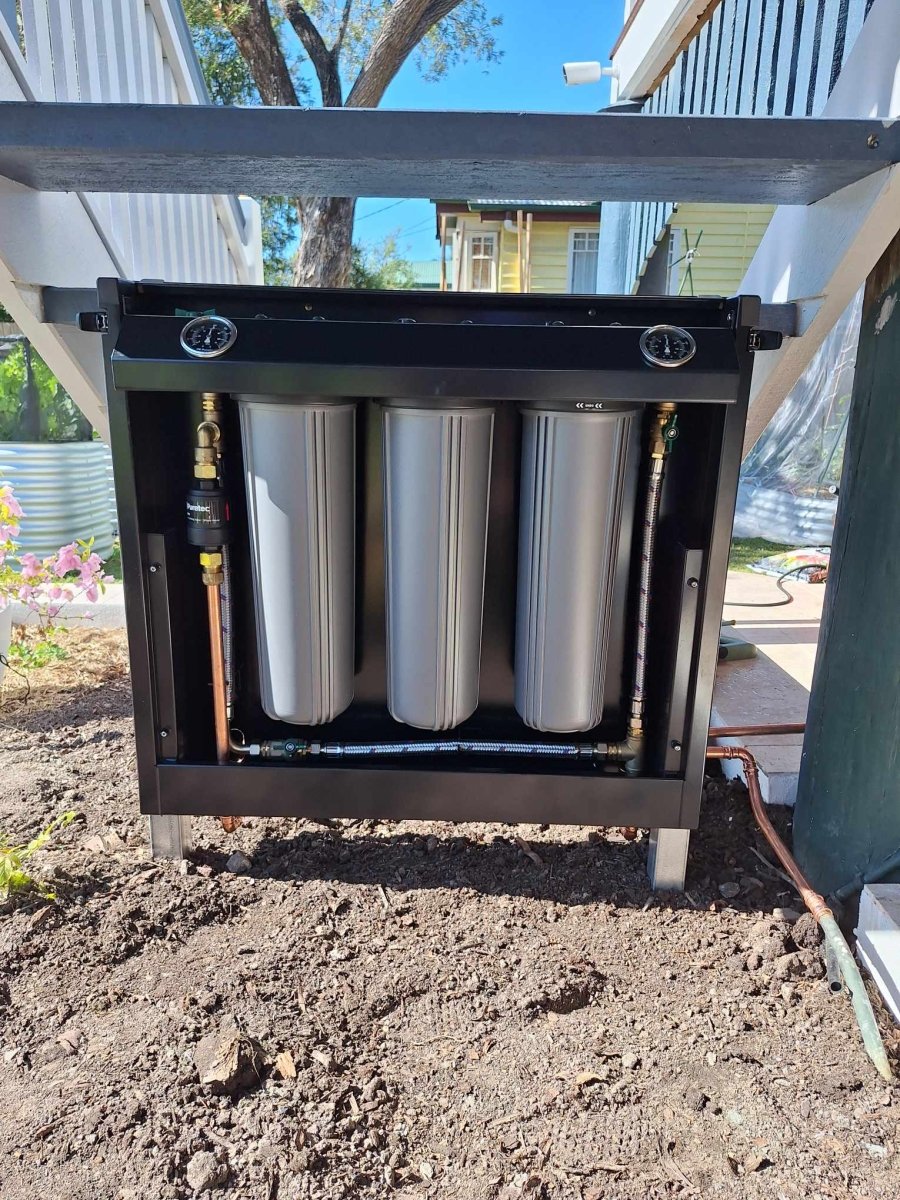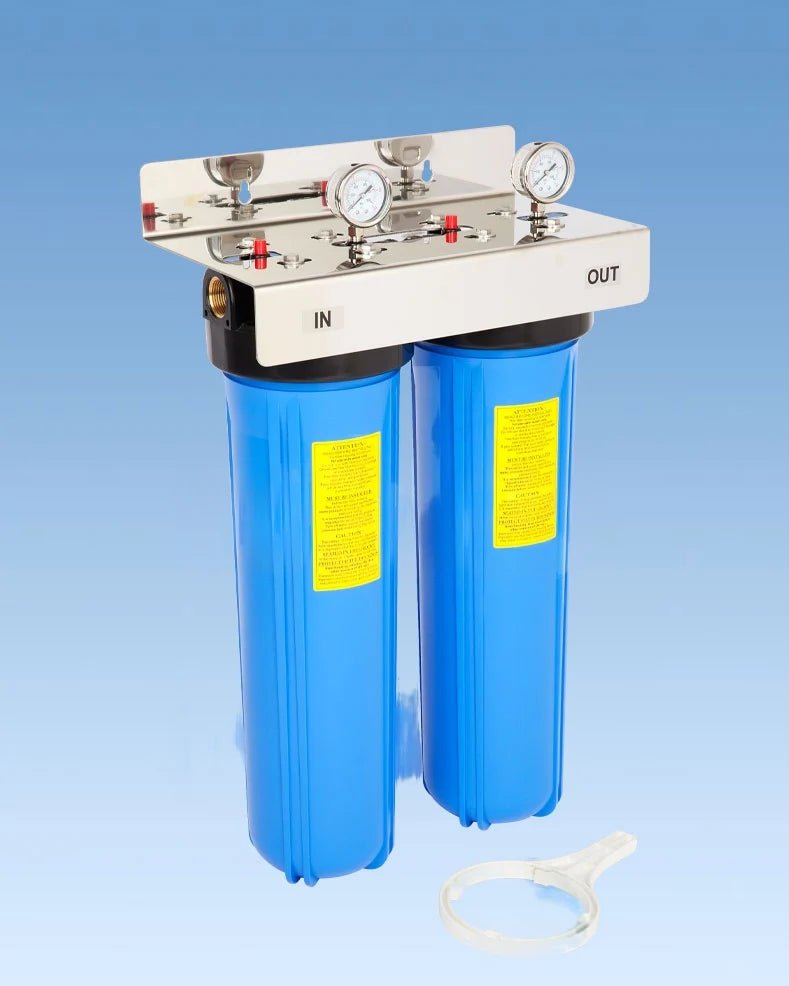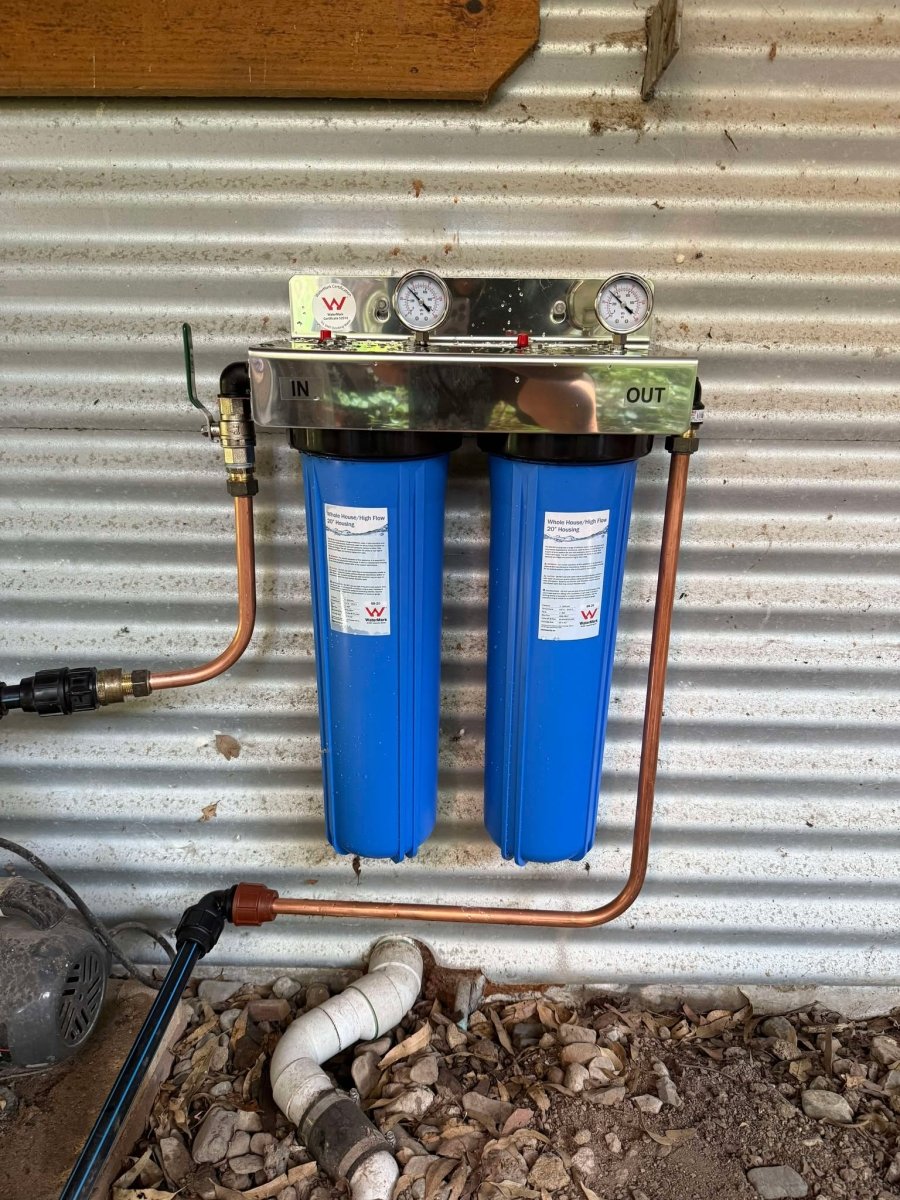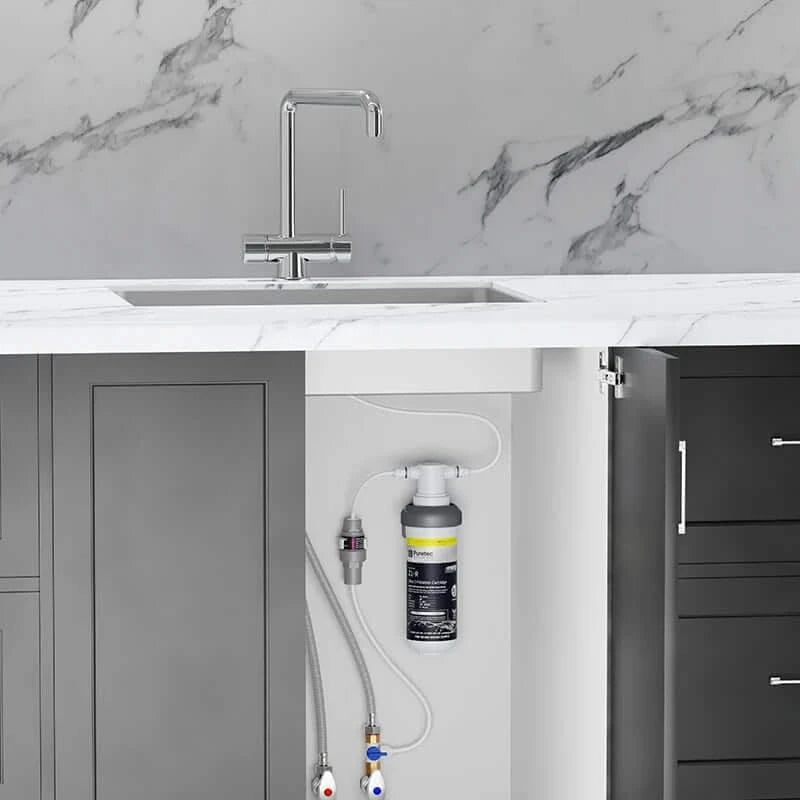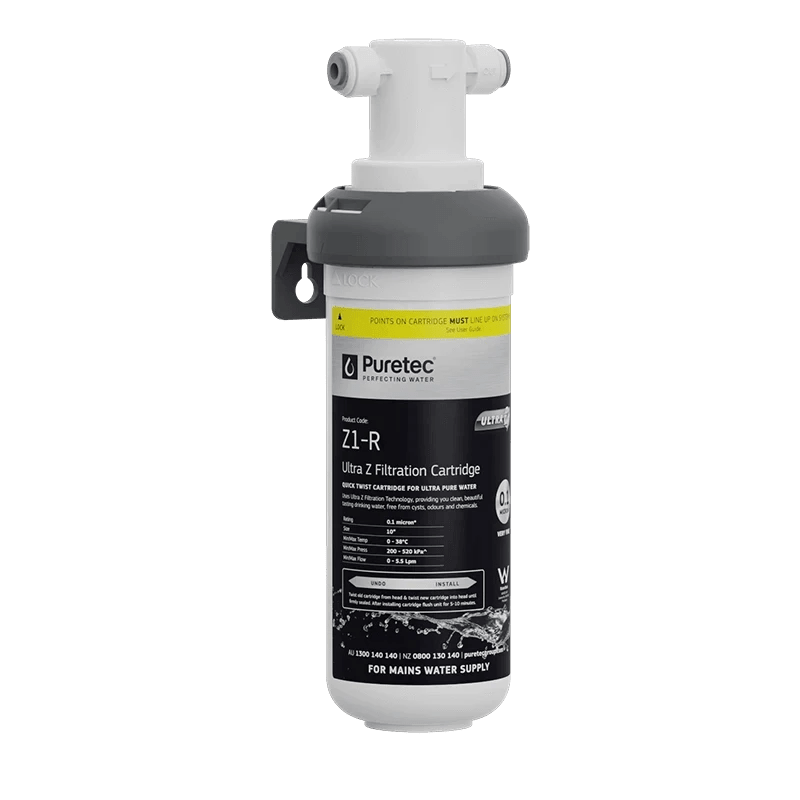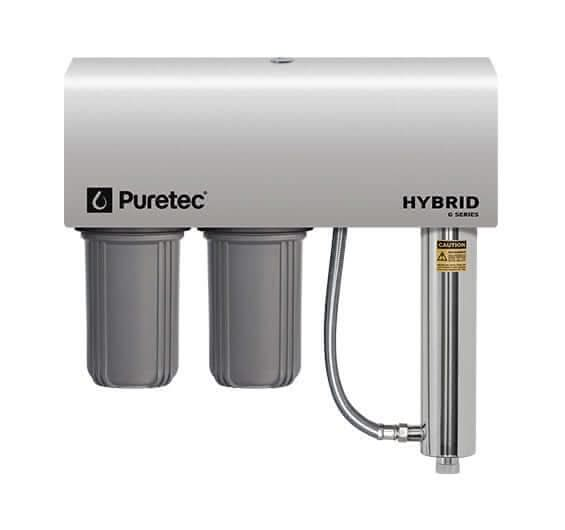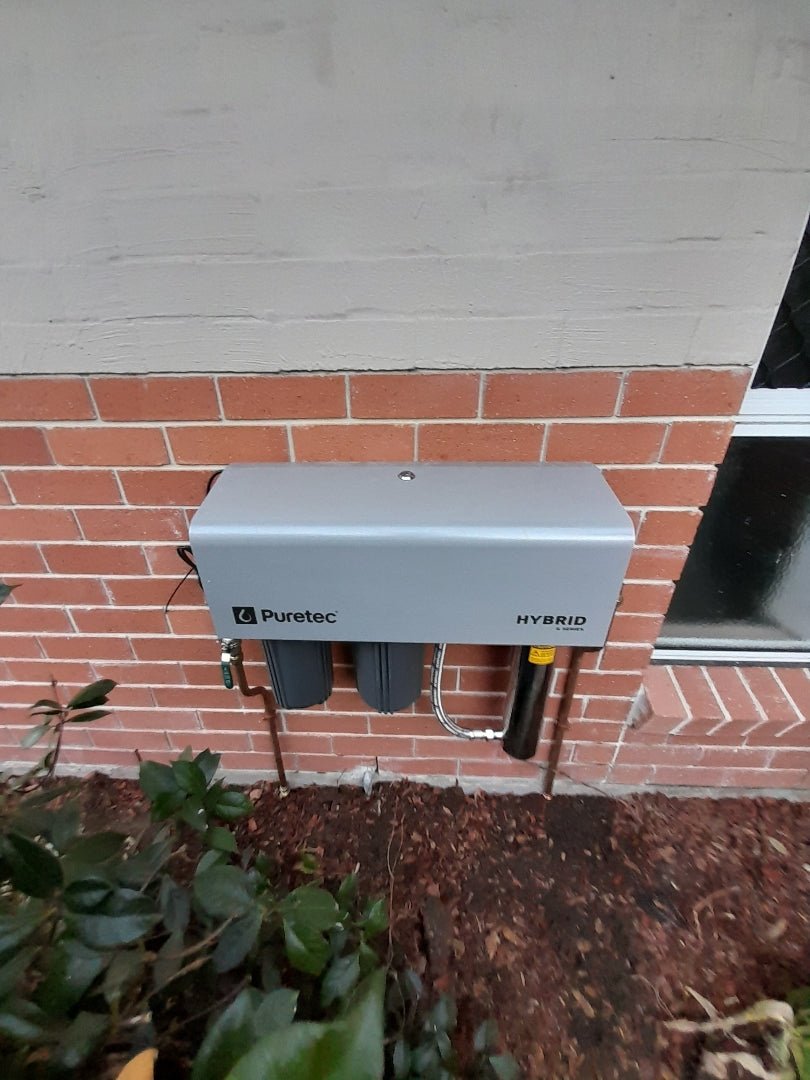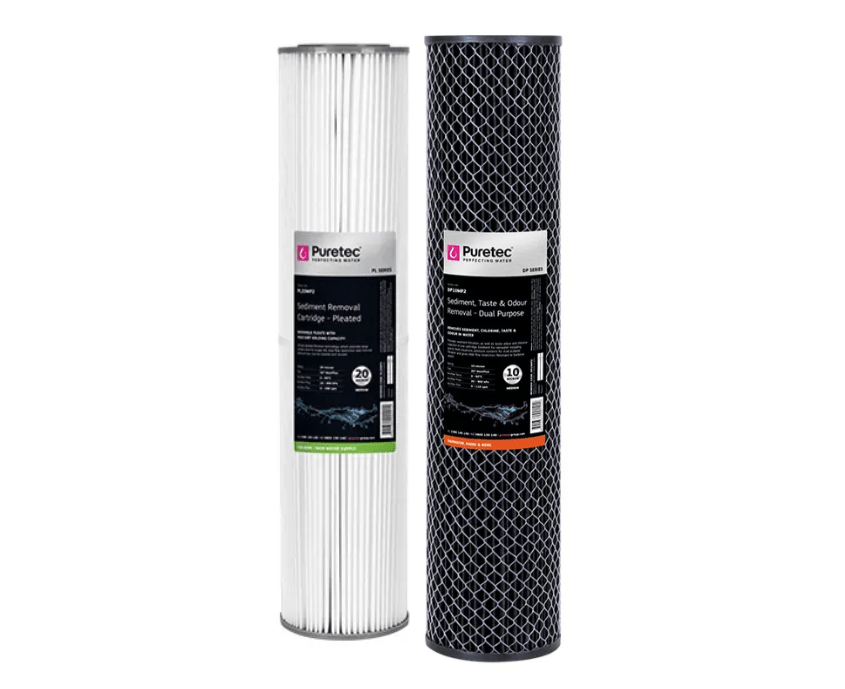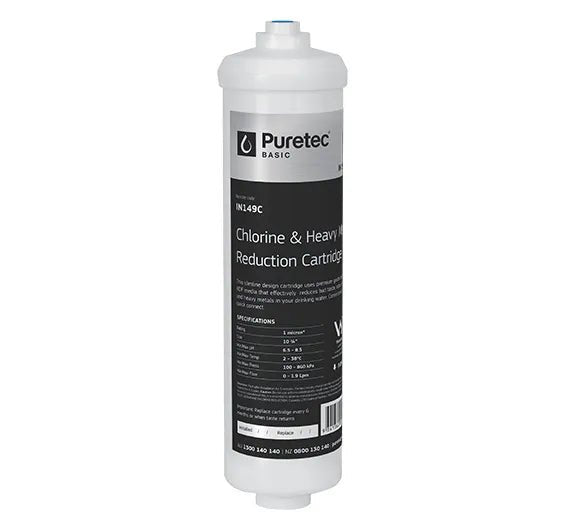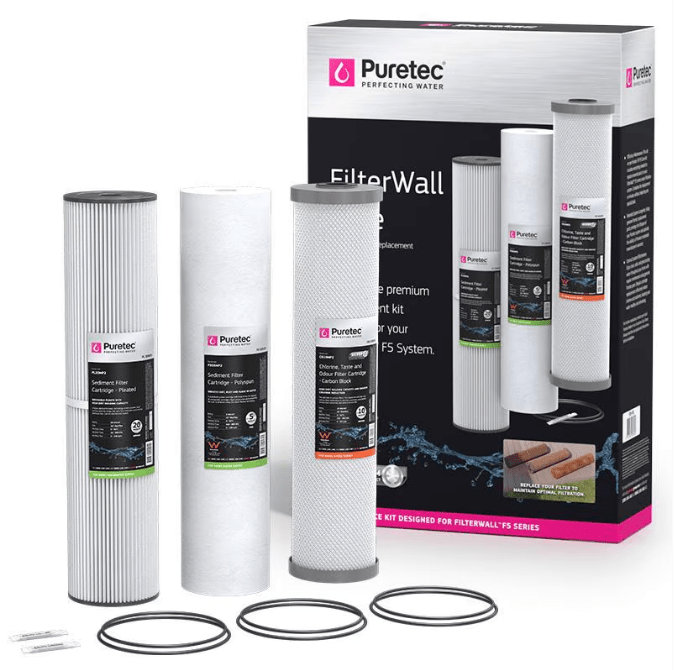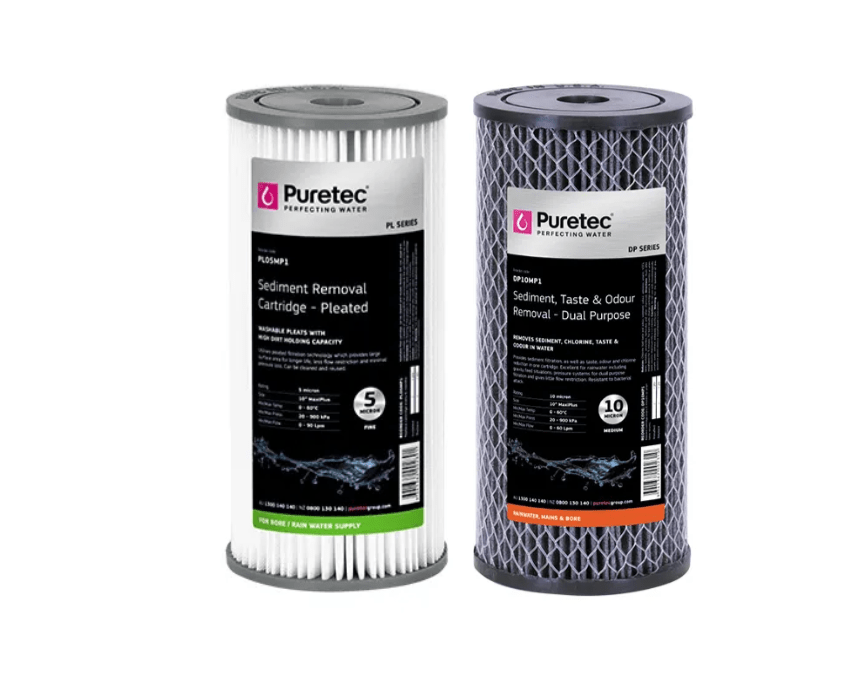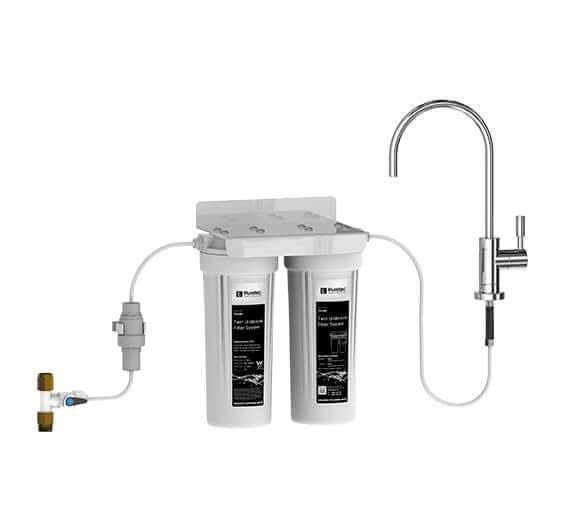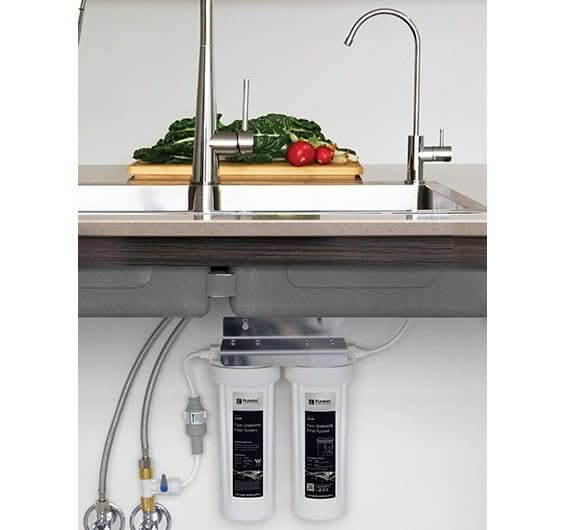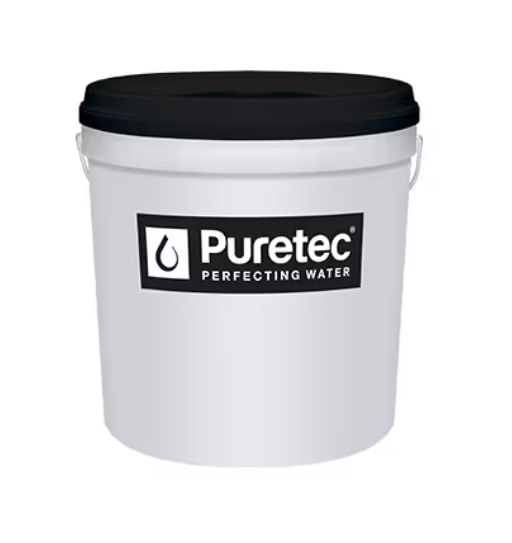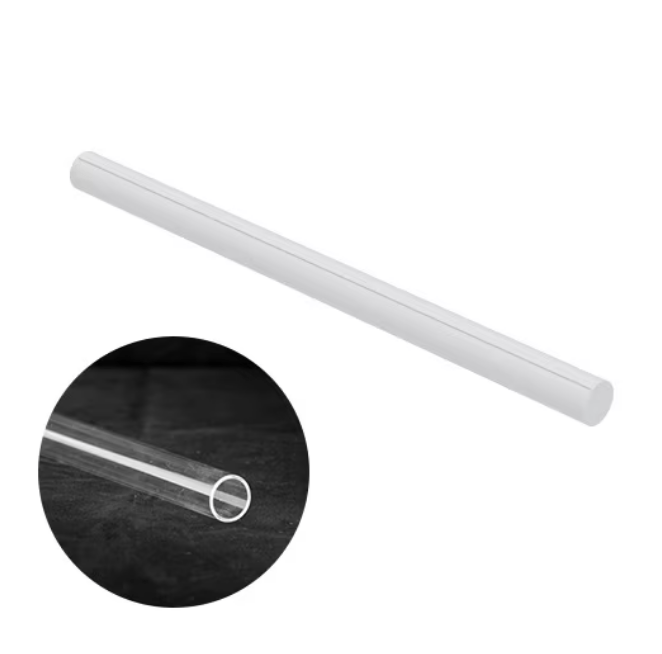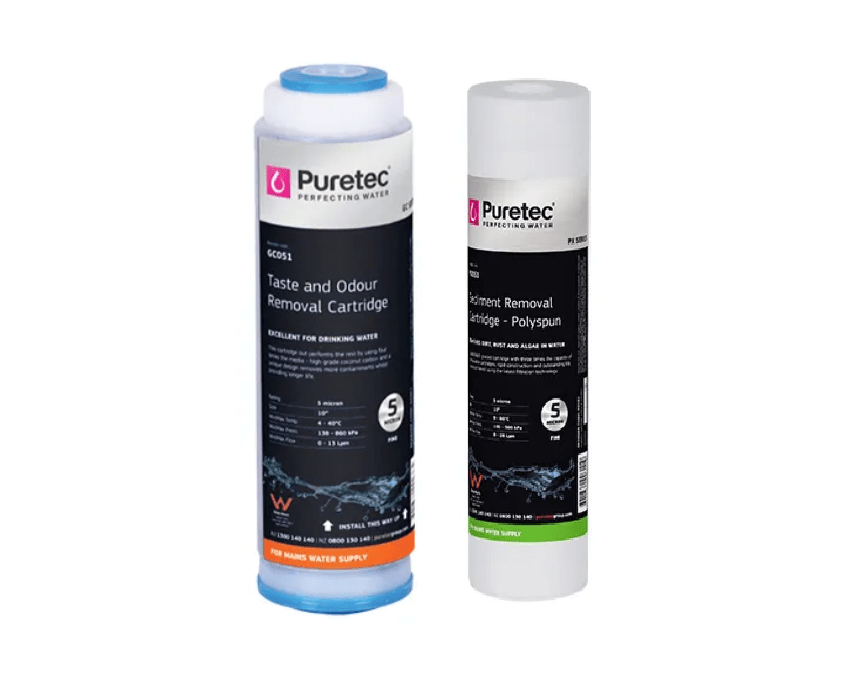The Healthiest Drinking Water Filters: Why Puretec is the Best Choice
Clean, safe drinking water is essential for a healthy lifestyle, but with so many water filters on the market, choosing the best one can be overwhelming. If you're looking for the healthiest drinking water filters, Puretec stands out as the gold standard in water filtration. Whether you need a whole-house system, an under-sink filter, or a reverse osmosis unit, Puretec provides premium water purification to remove harmful contaminants while preserving beneficial minerals.
💧 Why Choose a Water Filter for Your Home?
Unfiltered water can contain chlorine, sediment, heavy metals, pesticides, bacteria, and even microplastics. Filtering your water:
✅ Removes harmful contaminants for safer drinking water. ✅ Improves taste and odor by eliminating chlorine and impurities. ✅ Protects your health by reducing exposure to toxins. ✅ Saves money on bottled water and reduces plastic waste. ✅ Enhances skin and hair health by removing harsh chemicals from your water supply.
A sink water filter, particularly an under-sink water filtration system, provides high-quality and convenient access to purified water, making it ideal for everyday use in kitchens.
With Puretec’s industry-leading filtration technology, you can enjoy great-tasting, ultra-clean water straight from your tap.
What to Look for in a Water Filter
When shopping for a water filter, there are several key factors to consider to ensure you find the right one for your needs. Here are some things to look for:
-
Effectiveness: Choose a water filter that can remove a wide range of contaminants, including chlorine, lead, and bacteria. This ensures you get the safest drinking water possible.
-
Certification: Check if the filter is certified by reputable third-party organizations like NSF International or the Water Quality Association. Certification guarantees that the filter meets high standards for water purification.
-
Maintenance: Consider the maintenance requirements of the filter, including how often it needs to be replaced and how easy it is to clean. A low-maintenance filter can save you time and effort.
-
Flow Rate: If you have a large household or need to filter a lot of water at once, look for a filter with a high flow rate. This ensures you have a steady supply of filtered water without waiting.
-
Cost: Evaluate the upfront cost of the filter, as well as the cost of replacement filters and maintenance. A cost-effective filter provides long-term savings without compromising on quality.
The Benefits of Filtered Water
Filtered water can have a number of benefits for your health and well-being. Here are some of the advantages of using a water filter:
-
Improved Taste and Odor: Filtered water can taste and smell better than unfiltered water, making it more enjoyable to drink. Say goodbye to the unpleasant taste of chlorine and other impurities.
-
Reduced Risk of Waterborne Illnesses: Using a water filter can reduce the risk of waterborne illnesses, such as giardiasis and cryptosporidiosis, by removing harmful bacteria and parasites.
-
Lower Risk of Cancer: Some studies suggest that drinking filtered water may lower the risk of certain types of cancer, such as colon and bladder cancer, by removing carcinogenic contaminants.
-
Healthier Skin and Hair: Filtered water can be better for your skin and hair, as it reduces the amount of chlorine and other harsh chemicals that can dry out your skin and hair, leaving them healthier and more vibrant.
🔍 Understanding Water Filters
Water filters work by removing contaminants from water through a physical or chemical process. Here are some common types of water filters:
-
Activated Carbon Filters: These filters use activated carbon to remove chlorine, lead, and other contaminants from water. They are effective at improving taste and odor.
-
Reverse Osmosis Filters: These filters use a semipermeable membrane to remove impurities from water, including dissolved solids, bacteria, and viruses. Reverse osmosis filtration is known for its high level of purification.
-
UV Filters: These filters use ultraviolet light to kill bacteria and other microorganisms in water. UV light is a chemical-free method of sterilization, ensuring safe drinking water.
Types of Water Filters
There are many different types of water filters available, each with its own strengths and weaknesses. Here are some common types of water filters:
-
Under Sink Water Filters: These filters are installed under the sink and can provide filtered water for drinking and cooking. They are convenient and save counter space.
-
Whole House Water Filters: These filters are installed at the point of entry for the water supply and can provide filtered water for the entire house. They ensure that every tap in your home delivers clean water.
-
Countertop Water Filters: These filters are placed on the countertop and can provide filtered water for drinking and cooking. They are easy to install and use.
-
Pitcher Water Filters: These filters are placed in a pitcher and can provide filtered water for drinking. They are portable and require no installation.
The Importance of Contaminant Removal
Contaminant removal is an important consideration when choosing a water filter. Here are some common contaminants that can be found in water:
-
Chlorine: Chlorine is a disinfectant commonly used in water treatment plants. However, it can also have negative health effects, such as dry skin and hair. Removing chlorine improves the taste and safety of your water.
-
Lead: Lead is a toxic metal that can be found in older pipes and fixtures. It can have serious health effects, including brain damage and developmental delays. A good water filter can effectively remove lead from your water supply.
-
Bacteria: Bacteria, such as E. coli and Salmonella, can be found in water and can cause waterborne illnesses. Filtering out bacteria ensures your drinking water is safe.
-
Viruses: Viruses, such as norovirus and rotavirus, can be found in water and can cause waterborne illnesses. A reliable water filter can eliminate these pathogens, providing you with clean, safe water.
By considering these factors and understanding the different types of water filters available, you can make an informed decision and choose the best water filter for your home. With Puretec, you can trust that you’re getting top-quality filtration systems designed to provide the healthiest drinking water for you and your family.
🔎 Top Puretec Water Filters for the Healthiest Drinking Water
1️⃣ Puretec Z1-R 3-in-1 Undersink Filter – The Ultimate Tap Water Purifier
💦 Best for: Households looking for a compact, high-performance drinking water filter.
✅ Advanced Ultra Z Filtration Technology – Removes bacteria, chlorine, sediment & more. ✅ Easy DIY Installation – No plumber required. ✅ Ultra-Fine 0.1 Micron Filter – Captures up to 99.9% of contaminants. ✅ Better Taste & Odor – Reduces chlorine and improves water clarity.
This space-saving, under-sink water filter is perfect for those who want clean, pure water on demand without bulky filtration units.
2️⃣ Puretec ESR2 Series Whole House Water Filter – Complete Home Protection
💦 Best for: Families who want clean, safe water for every tap in the house.
✅ Whole-house filtration – Removes chlorine, sediment, and rust before water reaches your taps.
✅ Protects appliances – Extends the life of hot water systems, washing machines, and dishwashers.
✅ Improves shower & bath water – No more skin-drying chemicals!
✅ Long-lasting filter cartridges – Minimal maintenance required.
Ideal for city water supplies, the ESR2 series ensures cleaner, healthier water throughout your home.
3️⃣ Puretec Hybrid G Series – Best for Rainwater & Rural Properties
💦 Best for: Homes using rainwater tanks or bore water.
✅ UV Protection + Filtration – Kills 99.9% of bacteria & viruses.
✅ Removes sediment, chlorine, and organic matter.
✅ Perfect for off-grid homes, farms, and rural properties.
✅ No chemicals or power required – Uses natural UV sterilization.
If you're relying on tank water or bore water, this system is a must-have to ensure pure, bacteria-free drinking water.
4️⃣ Puretec RO270 Reverse Osmosis System – The Ultimate Water Purity Solution
💦 Best for: Those wanting lab-grade purified water.
✅ Removes up to 99.95% of contaminants, including fluoride, heavy metals, and pesticides. ✅ 4-Stage Filtration System – Ensures the highest water purity. ✅ Retains beneficial minerals while eliminating toxins. ✅ Compact under-sink unit – Perfect for health-conscious households.
A reverse osmosis filter is the gold standard for water purity, making this system perfect for those with sensitive health needs.
🛠️ Puretec Water Filters: Easy Installation & Maintenance
DIY or Professional Installation?
Puretec designs user-friendly filtration systems that can be easily installed without the need for a plumber. However, for whole-house systems and UV filtration units, professional installation is recommended for optimal performance.
How Often Should You Replace Your Filters?
Regular maintenance ensures your filter continues to deliver clean, safe water. Puretec filters generally need replacing every 6-12 months, depending on usage and water quality.
🚨 Signs it’s time for a new filter:
❌ Reduced water pressure.
❌ Change in water taste or smell.
❌ Cloudy or discolored water.
🌱 The Eco-Friendly Choice – Reduce Plastic Waste
Using a Puretec water filter means you can ditch single-use plastic bottles for good. On average, a household that switches to filtered tap water can save over 1,000 plastic bottles per year!
🔹 Lower your carbon footprint.
🔹 Save money on bottled water.
🔹 Reduce plastic pollution in our oceans.
Puretec filtration systems are the sustainable choice for clean, great-tasting water without the waste.
💙 Why We Recommend Puretec – The Trusted Water Filtration Brand
🔹 Australian-Made & Designed – Engineered for local water conditions.
🔹 Unmatched Filtration Performance – Removes more contaminants than standard filters.
🔹 Proven Health Benefits – Clean water means better hydration, digestion, and skin health.
🔹 Eco-Friendly & Cost-Effective – Reduces plastic waste & saves money.
🔹 Reliable Customer Support – Backed by industry-leading warranties.
With Puretec, you're investing in quality, reliability, and long-term health benefits for your family.
💦 Ready for the Cleanest, Healthiest Water? Get a Puretec System Today!
🌟 Whether you need a drinking water filter, a whole-house system, or reverse osmosis purification, Puretec has the best solution for your home.
🔹 Better taste, safer water, and fewer contaminants.
🔹 Saves money vs. bottled water & reduces environmental impact.
🔹 Easy to install, maintain, and upgrade.
📍 Order your Puretec water filter now and experience the difference! Clean water, made simple. 💙💧




